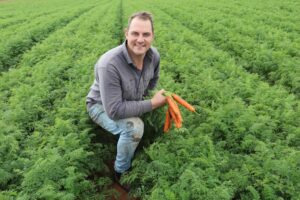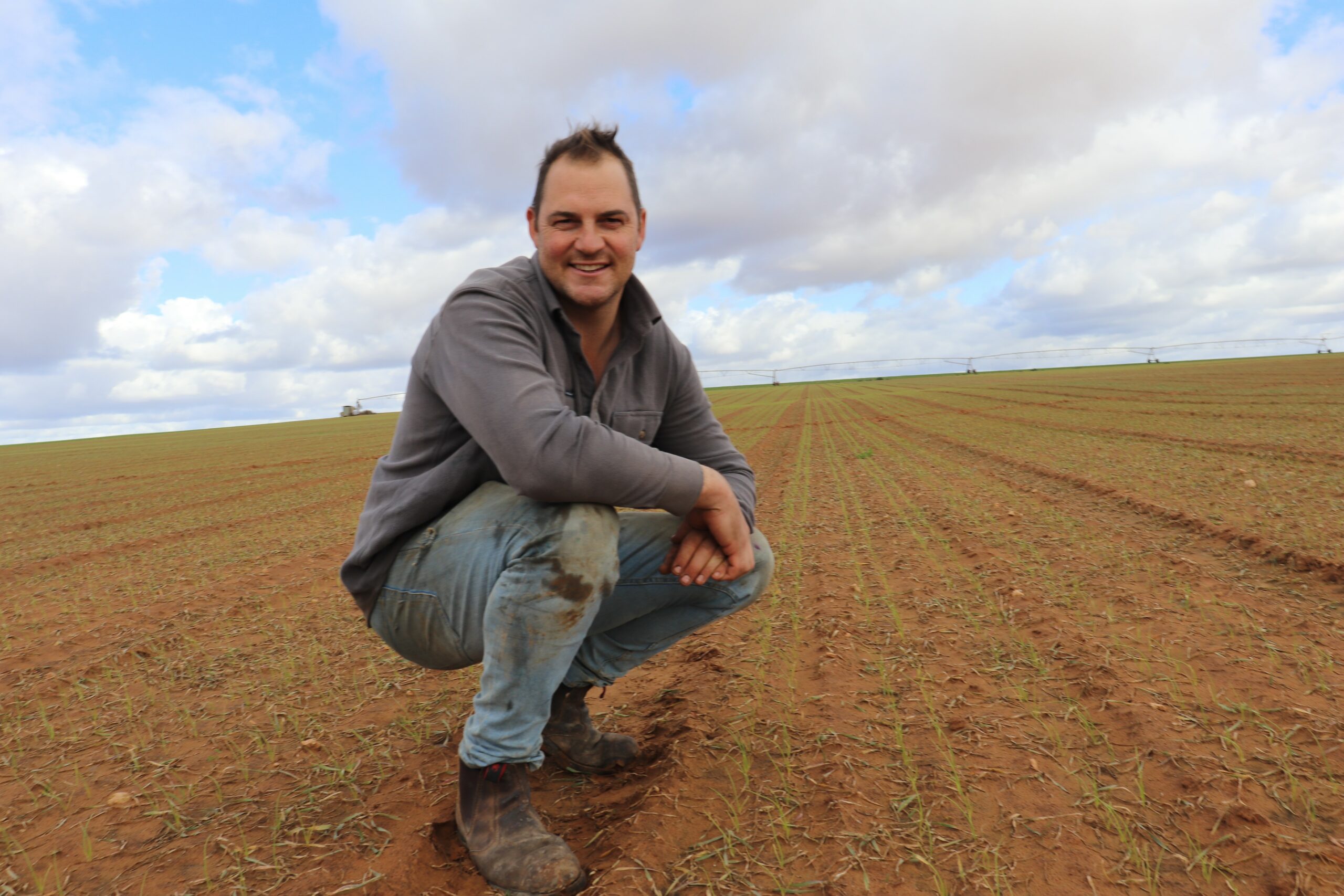What started as a farm-sit has given Bowhill Produce a family legacy for growing onions and carrots.
Bowhill Produce principally grows onions and carrots on the banks of the Murray River in the Murray Bridge region. Through trial and error, and learning from their peers, the Smith family have built a farm enterprise for future generations.
James Smith of Bowhill Produce is a third-generation onion and carrot grower, which began with humble beginnings when his grandfather managed a neighbour’s onion farm for a month, getting under his skin enough to buy his own farm.
Located on the banks of the Murray River in the Murray Bridge, SA region, Bowhill Produce started as just a few acres. Under James’ father Kevin’s management, the farm is now 2,000 acres with around 250 acres under onions and carrots per year and a further 3,500 hectares for broadacre crops such as canola, lentils, wheat, barley and ryecorn.
Brown onions form the majority of the varieties grown along with red and white varieties. The brown and red onions are sold into the domestic wholesale market, while the white onions are mainly exported to the Middle East and Europe. The farm also works with onion seed companies to conduct trials to improve onion varieties.
“We plant the brown onion varieties from May with successive plantings all the way through to mid-September,” said James.
“The early plantings of brown onions do not have a long storage and need to be sold quickly. The later in the season we plant, generally the longer shelf life they have. Some are stored in the open air shed, and some in cold storage.
“We have been exporting white onions for at least 30 years. The price of freight since COVID has definitely increased, along with rate changes to Europe from geopolitical issues. It is a lot more complicated to export, but we have a good relationship with our buyers, so it is worth sticking with it.”

The region is well known for its deep sandy loam soil and windy conditions. Cover crops form an important aspect of the farm to hold the soil in place between harvests as well as for soil health. Typically, James will plant ryecorn in the onion and carrot crops, terminating it as the plant matures. The use of ryecorn also lowers the risk of disease, particularly nematodes for carrots. Rotation is typically onions, then carrots followed by a cereal crop. Depending on the rotation of the broadacre acreage, a legume crop may be used, before one or two seasons of ryecorn that will be turned in as green manure.
One of the major issues for onions is herbicide resistance in ryegrass. To manage that risk, James says that keeping the onion fields clean and minimising broadacre crop crossover lowers the likelihood of ryegrass coming through a wheat or barley crop and keeps the seedbank down.
Irrigation is sourced from the Murray River which can bring its own set of challenges. Most growers in the region pump directly from the river. In times of flood as in 2023, the pumps were at risk of becoming fully submerged, but once the flood levels receded, mud in the pumps and pivots became a problem. As part of quality assurance, the water is tested regularly to ensure it is clean.
Evolving and learning
When James’ grandfather managed the farm, onions were harvested by hand and loaded into small crates.
With any business the aim is to improve efficiency, so now the onions and carrots are machine harvested and loaded into 1- 4 tonne bulk bins. Other improvements have included large modern self-propelled spraying equipment that lowers the use of water and chemicals, and improve the rate of spraying to take advantage of spray windows to gain the maximum benefit. Automation of irrigation has also given time back to James, such that it can be operated and monitored remotely from a mobile device.
As the business has grown, the pressure on the packing shed means that improving efficiencies in packing, grading and storage will be next and will give greater scope for production increases in both onions and carrots in the future.
James has spent time away from the farm, and has returned to take over management from his father. The experience off-farm he says, has given him self-improvement that has enabled him to improve the quality of the produce grown on the farm.
“I always strive for improvement and want to come up with better ways of doing things,” said James.
“We definitely have some challenges such as the chemistries available to manage ryegrass. Increases in fertiliser, fuel, and other costs have also added pressure to ensuring we are efficient.
“Seeing what onion varieties might work, or how to manage downy mildew can be farm specific, but other growers are willing to share their knowledge.
“Facing those challenges and finding better ways is why I like what I do. Talking with our neighbours, and the greater onion industry gives you an opportunity to learn from each other, to see what works, and what doesn’t. Doing it together is definitely a better way forward.
“For young growers, I would say don’t be scared to ask questions of people in the industry or take advantage of organisations such as AUSVEG who bring people from all over the world to talk with growers and conduct farm tours. See how other people do things and bring those ideas back to your farm.”
This project is a strategic levy investment in the Hort Innovation Onion Fund
Project VN22000

